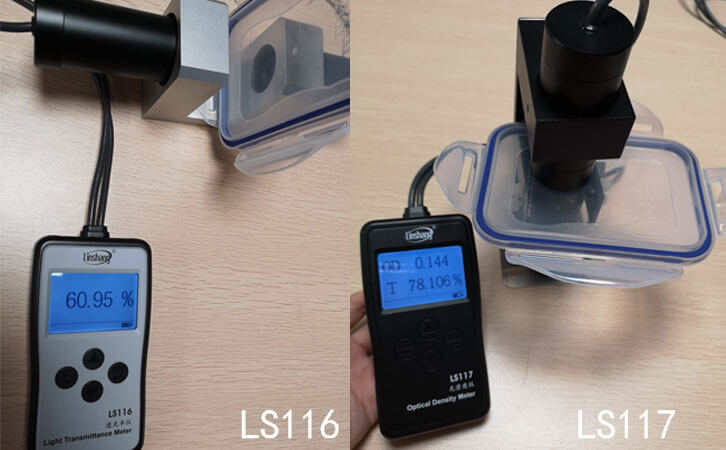Application of PP and How to Test the Light Transmittance
Polypropylene(PP) is a polymer obtained by polyaddition of propylene. With transparent appearance and low-density, it can resist the corrosion of acid, alkali, salt liquid and various organic solvents below 80 °C, and can decompose under high temperature and oxidation.The finished product of the polypropylene container requires to test the light transmittance with a light transmittance meter to confirm uniformity.
Application of PP materials
1. Machinery and automotive parts
Polypropylene has good mechanical properties and can be directly manufactured or modified to manufacture parts of various mechanical equipment, such as manufacturing industrial pipes and agricultural water pipes. The modified polypropylene can be molded into bumpers, instrument panels and interior trim parts, which greatly reduces the weight of the body to save energy.
2. Electronic and electrical industrial devices
The modified polypropylene can be used to make insulating shells for household appliances and washing machine liners, and is commonly used for insulating materials for wire and cable and other electrical appliances.
3. Construction industry
Polypropylene fiber is the lightest of all chemical fibers, and has the advantages of high strength, good toughness, good chemical resistance and microbial resistance, and low price. The modified polypropylene is used in a large number of construction engineering templates. The foamed polypropylene can be used to make decorative materials. In the event of an earthquake, polypropylene fiber ceramsite concrete is safer than ceramsite concrete.
4. Agriculture, fisheries and food industry
Polypropylene can be used to make greenhouse hoods, mulch films, culture bottles, agricultural tools, fish nets, etc., and to make food turnover boxes, food bags, beverage packaging bottles, and the like. The toughness of the in-situ fiber-forming composite prepared by the combination of waste PET and PP is obviously improved compared with PP, and the reproducibility of mechanical properties is quite good. Recycling used PET has significant economic and social benefits.
5. Textile and printing industry
Polypropylene is a raw material for synthetic fibers. Polypropylene fibers are widely used in the manufacture of lightweight and durable textile products. The printed images made of polypropylene materials are particularly bright and beautiful.
6. Other industries
In the chemical industry, polypropylene can be used in the preparation of various corrosion-resistant pipelines, tanks, valves, shaped packing in packed towers, filter cloths, corrosion-resistant pumps and linings for corrosion-resistant containers; Medical equipment; polypropylene can also be developed and applied in the energy field through grafting, compounding and blending processes.
The finished product of the PP material needs to be tested for the uniformity of light transmittance, and the uniformity of the light transmittance is used to judge whether the production process is up to standard. The following figure uses two light transmittance meters to test PP food containers.
Containers made of PP materials tend to look transparent, but are actually not transparent but translucent. The LS116 in the above figure uses the principle of regular transmission. During the test, some of the light is diffusely transmitted, so it cannot be received by the detector. The transmittance data displayed by the instrument is significantly lower than the true value. Therefore, it is necessary to measure using the LS117 light transmittance meter with the diffuse transmission principle.
In addition to measuring light transmittance, the LS117 light transmittance meter can also be used to test optical density values.
For more product information, please refer to "LS117 Light Transmittance Meter".
- LS117 Optical Densitometer Measure Welding Mask Glass
- Companre LS117 Optical Density Meter With Others
- LS117 Densitometer Measure Application
- Difference of LS117 Densitometer and X-Rite 341 Densitometer
- LS117 Transmission Densitometer-Related Knowledge
- The details of LS152 glass light transmittance on-line monitoring device
